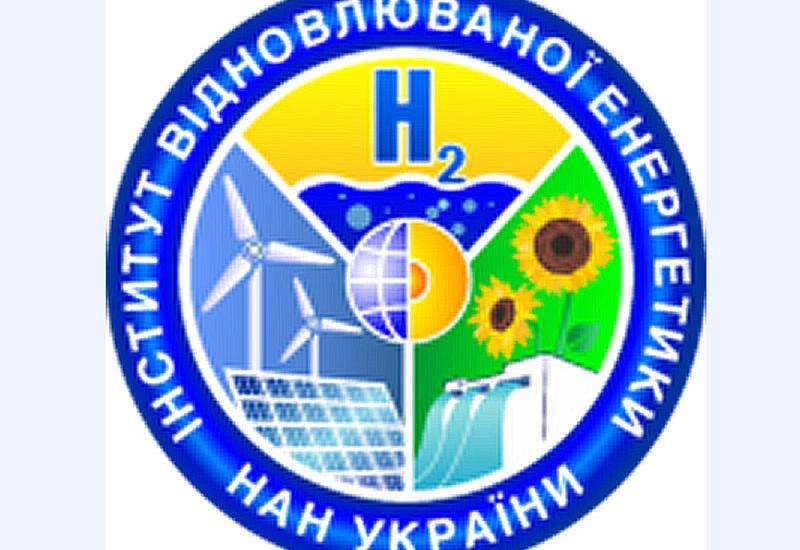This year's International Scientific and Practical Online Conference “Renewable Energy and Energy Efficiency in the 21st Century”, held in late May, was the twenty-fifth anniversary. It was dedicated to the 70th anniversary of Ukraine's membership in UNESCO and the 20th anniversary of the Institute of Renewable Energy of the National Academy of Sciences of Ukraine.
🗟
The organizers were the Institute of Renewable Energy of the National Academy of Sciences of Ukraine, the Representative Office of the Polish Academy of Sciences in Kyiv, the Interdisciplinary Scientific and Technical Center for Wind Energy of the IWE of the National Academy of Sciences of Ukraine, Warsaw Polytechnic University, the Small Academy of Sciences of Ukraine, the Public Union “Energy Association ‘Ukrainian Hydrogen Council’, the Institute of General Energy of the National Academy of Sciences of Ukraine, the Institute of Technical Thermophysics of the National Academy of Sciences of Ukraine and, of course, Igor Sikorsky Kyiv Polytechnic Institute. Igor Sikorsky Kyiv Polytechnic Institute and the UNESCO Chair “Higher Technical Education, Applied Systems Analysis and Informatics” at the Institute of IPSA Igor Sikorsky Kyiv Polytechnic Institute.
The conference was attended by 244 researchers of different ages and status, including 16 students of the Junior Academy of Sciences, 43 foreigners, representatives of Poland, Uzbekistan, Germany, Spain, Sweden, Czech Republic, and Latvia. Young scientists presented their reports in all areas of renewable energy.
Traditionally, the Rector of Igor Sikorsky Kyiv Polytechnic Institute, Mykhailo Zgurovsky, opened the anniversary conference with a welcoming speech. He noted that the state and problems in the energy sector of Ukraine during the military operations became a clear indication of the urgent need for its reform to achieve full energy security of our country. An important area is the creation of distributed power generation based on renewable sources, primarily using wind and solar energy, which will make the national energy system more resistant to enemy attacks. At the same time, the modernization of the energy sector requires the involvement of a large number of qualified specialists both to create a scientific base and support projects and to directly carry out work on the construction and restoration of renewable energy facilities.
Oleksandr Repkin, Chairman of the Board of the Ukrainian Hydrogen Council, also greeted the participants. He emphasized that the need to restore and strengthen the national energy infrastructure has never been more evident than it is today. The destabilizing impact of enemy attacks on it has made the need to ensure the country's energy independence and sustainability even more acute. In this context, renewable energy sources and innovative technologies, such as hydrogen, are becoming not just an option, but a necessity for the restoration of Ukraine's energy system and its autonomy.
Professor Stepan Kudria, Director of the Institute of Renewable Energy of the National Academy of Sciences of Ukraine, Corresponding Member of the National Academy of Sciences of Ukraine, Scientific Director of the Department of Renewable Energy of Igor Sikorsky Kyiv Polytechnic Institute, expressed his gratitude to each employee who continues to fight on the scientific and volunteer fronts in the difficult realities of wartime. And especially - to those scientists who went to defend our country in the ranks of the Armed Forces, thus giving their colleagues the opportunity to continue their creative work. He also thanked the university administration, Polish colleagues and representatives of the Ukrainian Hydrogen Council for their comprehensive support in organizing the conference and invited all conference participants to actively cooperate. “Implementation of joint scientific achievements will help strengthen the independence of our country and bring us closer to the Victory,” he emphasized.
Oleksandr Repkin made a report on the prospects and possibilities of hydrogen energy and on the production, storage and transportation of hydrogen. He was followed by Georgii Geletukha, Chairman of the Board of the Bioenergy Association of Ukraine, who spoke about the prospects for biomethane production in Ukraine.
The professional discussion on the conference topic began with a thorough report by Honored Power Engineer of Ukraine, Candidate of Technical Sciences Olga Buslavets on the role of renewable energy in Ukraine's current energy balance. According to her, given the destruction caused by the war and the current state of traditional generating capacities, renewable generation can play an extremely important role in saving the domestic energy industry, and there is an urgent need to reform the renewable energy support system.
Several speakers focused on the conversion of solar energy into electricity and heat. In particular, scientists from Uzbekistan in a number of reports and presentations talked about determining the main parameters of solar cells, calculating the solar cell energy conversion factor, testing PVT collectors in closed conditions, mathematical modeling of solar panels with water and air cooling, and also presented the results of mathematical modeling of active and passive solar panel cooling systems, etc. Other presentations dealt with general energy issues (e.g., specifics of renewable technologies, energy efficiency, balancing energy flows, etc.), as well as the use and implementation of hydropower, wind energy, geothermal installations, biofuels, and hydrogen production and use. All submitted materials are available on the website of the Institute of Renewable Energy of the National Academy of Sciences of Ukraine in the “Conferences” section: ive.org.ua/?page_id=4895&lang=uk

